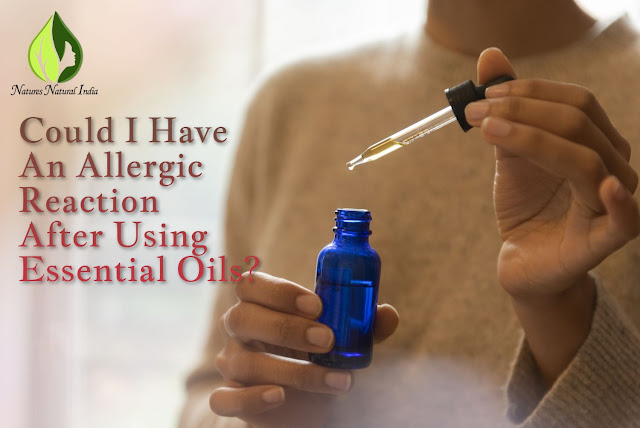Introduction
Essential
oils have become extremely popular in recent years due to their numerous
medicinal and aromatic characteristics. These natural compounds from plants,
flowers, and fruits have been utilized in conventional medicine and
aromatherapy for generations. While essential oils are generally regarded safe
when used correctly, allergic reactions are possible. In this post, we will
look at the dangers of allergic responses to essential oils and how to utilize
them properly to reduce the possibility of side effects.
Essential
Oils Explained
Essential
oils are extremely concentrated liquids taken from plants' leaves, blossoms,
bark, stems, and roots. Extraction processes can vary, including steam
distillation, cold pressing, and solvent extraction. These oils contain the
natural compounds responsible for the plant's fragrance and other therapeutic
properties.
Allergic
Reactions to Essential Oils
While
essential oils are generally safe, they are potent substances that can lead to
allergic reactions in some individuals. An allergic reaction occurs when the
body's immune system identifies a specific component in the essential oil as a
foreign invader and responds by releasing chemicals like histamine. This can
result in a range of symptoms, including:
Skin
Irritation: Contact dermatitis is one of the most common allergic reactions to essential oils. It might cause redness, irritation, or a rash on the skin where
the oil was administered. This might happen anywhere between minutes and hours
after application.
Respiratory
Symptoms: Inhaling essential oil vapors or using a diffuser may trigger
respiratory allergies, leading to symptoms like coughing, sneezing, wheezing,
and nasal congestion.
Eye
Irritation: Some essential oils can irritate the eyes, causing redness,
itching, or watery eyes.
Gastrointestinal
Distress: Ingesting essential oils, which is not recommended without expert
guidance, can lead to nausea, vomiting, or digestive discomfort.
Systemic
Reactions: In rare cases, exposure to certain essential oils can lead to
systemic allergic reactions, causing symptoms like hives, swelling, and
anaphylaxis.
Common
Essential Oils Known to Cause Allergic Reactions
While
allergic reactions to essential oils can occur with any oil, some oils are more
likely to trigger sensitivities due to their chemical composition. It's
essential to be cautious when using the following essential oils:
Citrus Oils:
Oils like lemon, orange, and bergamot contain compounds that can increase
sensitivity to sunlight, potentially causing skin reactions.
Lavender Oil:
Despite its popularity, lavender oil may cause skin sensitivity in some people.
Eucalyptus
Oil: Although eucalyptus oil is known for its respiratory advantages, it might
cause respiratory allergies in certain people.
Tea Tree Oil:
This oil is used for its antiseptic properties but can also cause skin
irritation or allergic reactions in sensitive individuals.
Cinnamon Oil:
Cinnamon oil is potent and can lead to skin irritation or allergies, especially
when used in high concentrations.
Avoiding Allergic Reactions
To reduce the
risk of allergic reactions when using essential oils, follow these guidelines:
Patch Test:
Before utilizing a new essential oil, do a patch test by applying a diluted
solution to a small area of skin. Wait 24 hours to check if there are any bad
responses.
Dilution:
Always dilute essential oils with a carrier oil (such as coconut oil or jojoba
oil) before applying them to the skin. A normal dilution ratio of essential oil
to carrier oil is 1-2%.
Quality is
Important: Choose high-quality, pure essential oils from trustworthy providers
to eliminate the possibility of synthetic additions or impurities that might
cause allergic responses.
Personal
Sensitivity: Be aware of your own sensitivities and allergies. If you have a
history of allergies or skin sensitivities, use essential oils with care.
A qualified
aromatherapist or other healthcare provider should always be consulted before
taking essential oils.
Consult an
Expert: If you have concerns or are unsure about using a particular essential
oil, consult with an aromatherapist or healthcare provider.
Essential
oils provide a natural and holistic solution to a variety of health and
wellbeing issues. However, it is essential to be aware of the possible hazards
of allergic responses that may occur as a result of their usage. While these
reactions are relatively rare, understanding how to use essential oils safely
and responsibly is key to enjoying their benefits without complications. By
following proper dilution methods, performing patch tests, and being mindful of
personal sensitivities, you can incorporate essential oils into your daily
routine with confidence and peace of mind.






